Department of Earth and Environmental Sciences DISAT
Dottorandi
40th cycle
Aguettant Alois Jeanne Marie
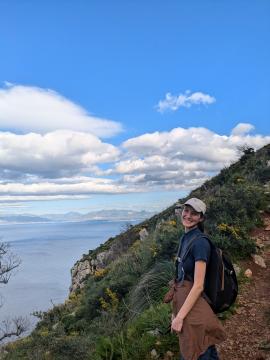
Titolo Tesi: Managing the protection of marine biodiversity through ecosystems services approaches: implication on marine and coastal tourism. A gender perspective.
Tutor: Marcella Schmidt di Freiberg
Supervisor: Maria Cristina Mangano
Breve Descrizione:
I am a political scientist, holder of a Bachelor’s in political science and international relations from SOAS, University of London and of the Interdisciplinary Master in International Affairs from the Geneva Graduate Institute, where I specialised in environmental governance and in gender studies. My research looks at the human dimension, and more particularly at the gender dynamics in small-scale fishing communities' practices of care for the conservation of marine Biodiversity in the Mediterranean, with a multisite study of Sicily and Mallorca. It ties together notions of gender equality, intersectionality and climate change, and interrogates human-environmental relations in the field of marine biodiversity conservation and human uses of maritime space. This project is part of the MEDiverSEAty Consortium, an EU-MCSA Doctoral Network.
Concari Eleonora
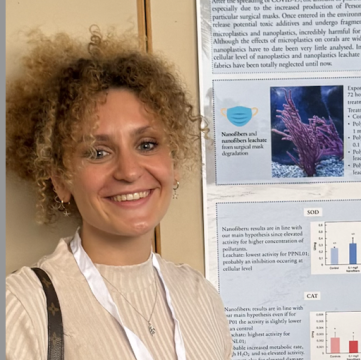
Titolo Tesi: Assessment of the ecological status of Maldivian ecosystems using innovative techniques
Tutor: Paolo Galli
Supervisor: Yohan Louid Dedier
Breve Descrizione:
I'm a marine biologist and ocean enthusiast. I graduated in Marine Sciences at the University of Milano-Bicocca; this course and my love for the ocean and its inhabitants encouraged me to continue with the PhD course in MTM. My research focuses on studying tropical ecosystems, especially in the Maldives, focusing on the identification, ecology, behaviour and conservation of nudibranchs and Platyhelminthes.
Dias Vittoria
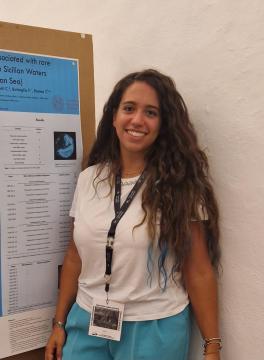
Titolo Tesi: Benthic Sensitive Ecosystems as a Source of Bacteria for Bioremediation
Tutor: Donatella De Pascale
Supervisor: Carmen Rizzo
Breve Descrizione:
La mia attività di ricerca durante la magistrale si è focalizzata sullo studio delle comunità microbiche marine associate a diverse matrici biotiche e abiotiche. In particolare, la prima attività di ricerca ha riguardato l'analisi della bioluminescenza in alcuni pesci del Mediterraneo, attraverso l'isolamento di batteri bioluminescenti dagli organi luminosi di specie di acque profonde, la loro caratterizzazione filogenetica e, parallelamente, lo studio dell'intera comunità microbica associata all'organo luminoso. Inoltre, è stata valutata la risposta della bioluminescenza al contatto con vari contaminanti. Attualmente, il mio progetto di dottorato prevede l'esplorazione delle comunità microbiche simbiotiche e a vita libera in ambienti bentonici, con l'obiettivo di individuare batteri con potenzialità biotecnologiche applicabili a interventi di biorisanamento.
Galimberti Giulia
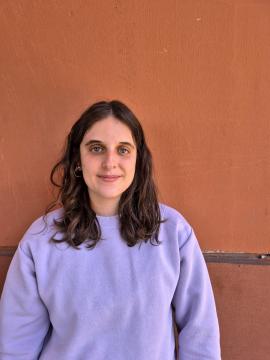
Titolo Tesi: Deciphering climate change, anthropogenic forces, and groundwater dynamics from coral reef sediments to provide innovative and strategic mitigation actions in a Maldivian Atolls
Tutor: Alessandra Savini
Supervisor: Luca Fallati
Breve Descrizione:
During my bachelor's degree in Geological Sciences and Technologies and my master's degree in Marine Sciences at the University of Milano-Bicocca, I developed a strong interest in studying marine environments, deepening my knowledge in both micropaleontology and the use of advanced technologies for habitat mapping.
Thanks to my internship in Tromsø, at UiT – The Arctic University of Norway, and a research period in Medellín, at Universidad Pontificia Bolivariana, I had the opportunity to combine these two fields of study. Currently, my research focuses on the application of sedimentology and innovative techniques for mapping Maldivian coastal and lagoon environments, with the aim of analyzing possible future scenarios for these islands in relation to climate change and its impacts on the sedimentary regimes of the archipelago.
In my free time, I love traveling and reading.
Gatti Tommaso
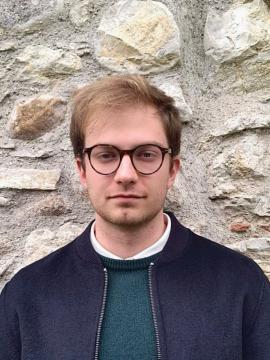
Titolo Tesi: Mass spectrometry in marine stress ecology: application of portable 3d ion trap mass spectrometer with atmospheric pressure interface to detect novel entities and chemical signaling interferences
Tutor: Marina Lasagni
Supervisor: Francesco Saliu
Breve Descrizione:
I'm Tommaso, and I have a master’s degree in Chemical Sciences and Technologies from the University of Milano-Bicocca. During my studies, I built a strong background in chemistry and its real-world applications, especially in environmental analysis. I’ve worked with advanced mass spectrometry and chromatography techniques to break down complex samples in different fields.
In my free time, I love traveling to dive into new cultures and food traditions. I also enjoy hiking in the mountains, which helps me unwind and push myself beyond my limits.
Moretti Eleonora
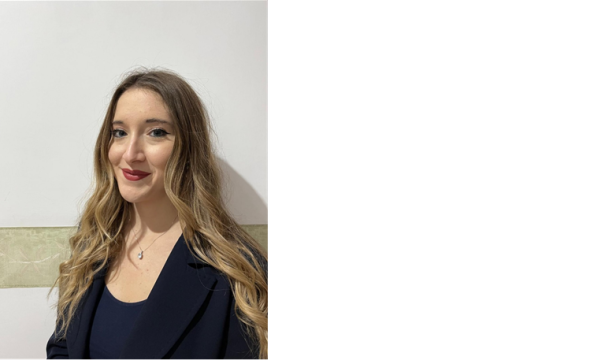
Titolo Tesi: Biotechnological exploitation of microorganisms from mangrove forests
Tutor: Donatella de Pascale
Supervisor: Paolo Galli
Breve Descrizione:
After obtaining a Master's degree in Biology from the University of Roma Tre, I completed a period as a research fellow at the Anton Dohrn Zoological Station in Naples, where I worked in the field of molecular biology and marine microbiology. I am currently pursuing a Ph.D., aimed at investigating the biotechnological potential of microorganisms associated with mangroves. The ultimate goal is to develop new bioactive compounds that can be used for therapeutic, cosmeceutical, and biotechnological applications.
Porro Matilda
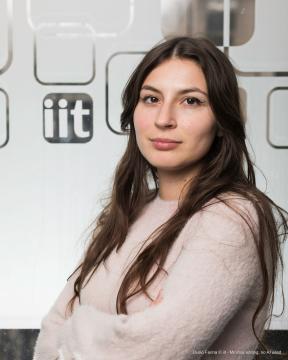
Titolo Tesi: Environmental fate of micro and nanoplastics in aquatic environments: examination and intervention strategies
Tutor: Despina Fragouli
Supervisor: Athanassia Athanassiou
Breve Descrizione:
I'm Matilda, PhD student of the course Marine Sciences, Technology and Management (MTM). I got a degree in Environmental Sciences and Technology at University Milano-Bicocca. I'm part of the Smart Materials group at Italian Institute of Technology (IIT) and my PhD research focuses on the study of the characterization of different micro and nanoplastics and their potential effects on aquatic organisms. In my free time I love travelling, doing immersions and skiing.
Ravelli Lorenzo
Titolo Tesi: Material-based approaches for healthy marine plants - Posidonia Oceanica
Tutor: Athanassia Athanassiou
Supervisor: Paolo Galli
Breve Descrizione:
Mi sono laureato in Scienze Biologiche e ho successivamente conseguito la laurea magistrale in Scienze Marine presso l'Università degli Studi di Milano-Bicocca, svolgendo la tesi presso l'Istituto Italiano di Tecnologia (IIT) di Genova. Ho partecipato a un tirocinio di restauro delle scogliere coralline alle Seychelles con l’ONG Nature Seychelles. Dopo un periodo di attività di ricerca presso l’IIT, ho intrapreso un Dottorato di Ricerca all’interno del progetto "Materiali avanzati sostenibili per la conservazione e il restauro delle praterie di Posidonia oceanica e di altre piante marine".
Fuori dal mondo accademico, mi divido tra le mie più grandi passioni: la subacquea per esplorare il mondo marino e gli sport di montagna, soprattutto se in ambienti estremi.
Rosano Fabiana
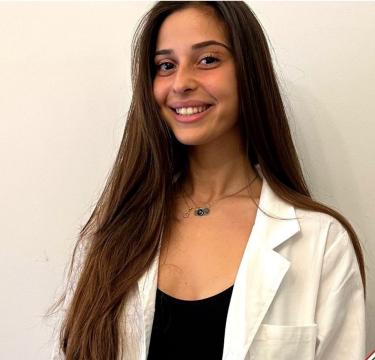
Titolo Tesi: Ecological role of Brachyura crustaceans in the Maldivian coastal ecosystems (ECOCRAB)
Tutor: Nunzia Carla Spanò (UNIME)
Supervisor: Paolo Galli
Breve Descrizione:
Laureata in Biologia ed Ecologia dell'Ambiente Marino Costiero presso l'Università di Messina, dove attualmente sto svolgendo il mio dottorato di ricerca. Il progetto a cui sto lavorando vuole fornire dati sulla diversità e l'abbondanza delle specie di crostacei Brachiuri nell’isola di Magoodhoo, Maldive, analizzandone la distribuzione spazio-temporale, le loro interazioni interspecifiche e il livello trofico, definendone le dinamiche di popolazione in relazione a variabili biotiche ed abiotiche.
Toniolo Lorenzo Massimo
Titolo Tesi: Learning from the 4th Global Coral Bleaching: Enhancing Thermal Tolerance, Developing Stress Memory, and Mitigating Strategies
Tutor: Davide Seveso
Supervisor: Yohan Louid Dedier
Breve Descrizione:
After a BSc in Biological Sciences (UniMiB) and an MSc in Marine Sciences (UniMiB), I decided to dedicate myself to research. During my MSc thesis project, conducted in Singapore (NUS), I learnt about molecular extraction and analysis, and fluorescence techniques to evaluate the photosynthetic response of corals subjected to light stress. Currently, my PhD project is focused on the study of coral bleaching from a photo-physiological and transcriptomic point of view. I aim to find innovative methods to enhance thermal resistance in corals and learn from the ones able to face naturally extreme environmental conditions.
I find a lot of satisfaction working both in the field and in the laboratory. I am passionate about sharing and disseminating knowledge related to my work and coral reefs. My passion for these ecosystems and this work is further enriched by the possibility of diving, one of my favourite activities.
39th cycle
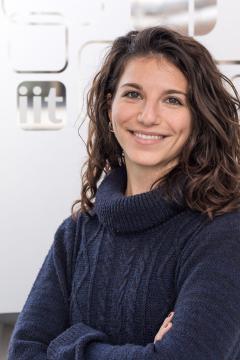
Email: e.bellini13@campus.unimib.it
Titolo Tesi: Engineering of Marine Biopolymers for ValueAdded Products
Tutor: Athanassia Athanassiou
Breve Descrizione:
Sono Elena, di Genova, e mi sono laureata in Scienze Biologiche presso l'Università di Genova e in Biologia Sperimentale e Applicata presso l'Università di Modena e Reggio Emilia. La mia fascinazione per l'ambiente naturale, in particolare il mare, mi ha spinto a specializzarmi nella creazione di prodotti sostenibili a partire da biopolimeri marini. Attualmente sto conseguendo il dottorato con lo Smart Materials Group presso l'Istituto Italiano di Tecnologia di Genova. Fuori dal laboratorio, mi piacciono i tessuti aerei, l'hula hoop e le immersioni estive!
Eck Camino
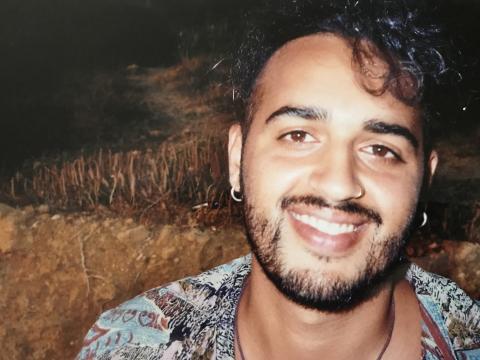
Email: c.eck@campus.unimib.it
Titolo Tesi: The Maritime Spaces in a Globalized World: Economics and Environment
Tutor: Giulio Mellinato
Breve Descrizione:
La mia ricerca si concentra sull'intersezione tra ecologia e scienze sociali, in particolare sul ruolo che le persone giocano nei sistemi socio-ecologici delle zone costiere e delle aree marine. Sono particolarmente interessato alla gestione delle risorse marine e delle aree marine protette. Oltre alla ricerca, ho una profonda passione per la musica.
Facchinelli Martina Pierina
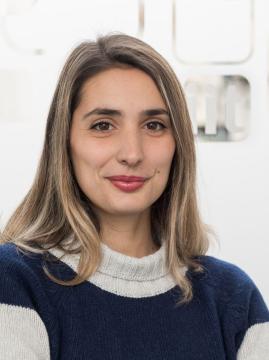
Email: m.facchinelli@campus.unimib.it
Titolo Tesi: Extraction of Natural Polymers and Chemicals from Marine Sources
Tutor: Athanassia Athanassiou
Breve Descrizione:
Ho studiato Scienze Marine presso l'Università di Milano-Bicocca e ho un forte interesse per i coralli, in particolare per le malattie dei coralli e le colture di zooxantelle. La mia passione mi ha portato in tutto il mondo, dalle Maldive alle Hawaii, dove ho completato la mia tesi di master. Attualmente sto sviluppando materiali biodegradabili per sistemi di consegna subacquei con il gruppo Smart Materials presso l'Istituto Italiano di Tecnologia di Genova. Il mio hobby preferito è la subacquea.
Gabrielli Erica
Email: e.gabrielli1@campus.unimib.it
Titolo Tesi: Restoration of Native Oyster Beds (Ostrea edulis) in the Gulf of La Spezia
Tutor: Davide Seveso
Breve Descrizione:
Sono una biologa marina con una laurea triennale in Scienze Biologiche presso l'Università di Firenze e una magistrale in Scienze Marine presso l'Università di Milano-Bicocca. Attualmente sto lavorando al mio dottorato in collaborazione con il Centro di Ricerca ENEA e l'Università di Milano-Bicocca. Studio le risposte fisiologiche e morfologiche delle ostriche native nel Golfo della Spezia per aiutarle a recuperare e ripristinare il loro habitat. Tra i miei interessi non accademici ci sono i romanzi fantasy, i manga giapponesi, il cinema, i viaggi e le immersioni subacquee.
Hemmateenejad Fereshteh
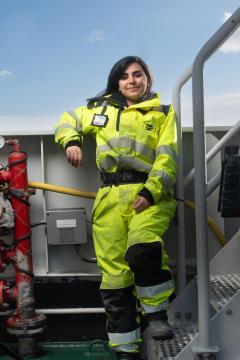
Email: f.hemmateenejad@campus.unimib.it
Titolo Tesi: The Application of 3D Photogrammetry and Geospatial Modelling Techniques for ColdSeeps Habitat Classification in the Arctic Ocean
Tutor: Alessandra Savini
Breve Descrizione:
Sono una geologa marina con una laurea in Geologia presso l'Università di Shiraz (Iran) e una magistrale in Scienze Marine presso l'Università di Milano-Bicocca. Ho acquisito competenze nell'analisi video ROV attraverso varie borse di studio di ricerca. Il mio dottorato si concentra sull'uso della tecnologia avanzata per classificare gli habitat di cold seep nell'Oceano Artico. Mi appassiona comprendere gli ambienti marini attraverso l'analisi dei dati video e geospaziali.
Marino Luca
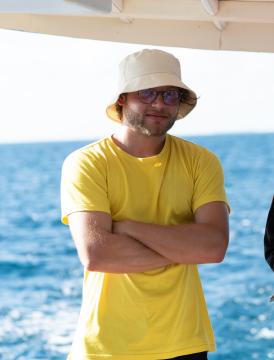
Email: l.marino27@campus.unimib.it
Titolo Tesi: Geospatial Modeling for Evaluating Restoration Suitability of Marine Ecosystems of the Mediterranean Seas and Tropical Regions
Tutor: Alessandra Savini
Breve Descrizione:
Sono Luca, dottorando nel programma di Scienze Marine, Tecnologie e Gestione. Con una laurea triennale in Scienze Naturali e una magistrale in Scienze Marine conseguita presso l'Università di Milano-Bicocca, la mia ricerca di dottorato si concentra sulla modellizzazione geospaziale e attraverso tecniche di Object-Based Image Analysis (OBIA) per supportare vari progetti di ripristino marino. Nel tempo libero mi piace suonare la chitarra e fare immersioni in apnea e subacquee ogni volta che ne ho l'opportunità!
Nicolai Rossella
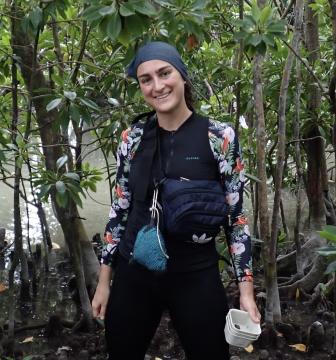
Email: r.nicolai1@campus.unimib.it
Titolo Tesi: Investigating the Molecular Diversity and Chemical Adaptations of MangroveAssociated Algae from the Republic of the Maldives
Tutor: Paolo Galli
Breve Descrizione:
Con una laurea magistrale in Ecologia presso la Victoria University of Wellington (Nuova Zelanda), ho lavorato nel campo della coltivazione di alghe per scopi commerciali. Il mio dottorato si concentra sulla diversità molecolare e gli adattamenti fisiologici delle alghe bentoniche nelle mangrovie maldiviane, in particolare quelle relative agli osmoliti e alle molecole protettive dai raggi UV. Il mio lavoro ha potenziali applicazioni in ambito commerciale.
Senna Giulia
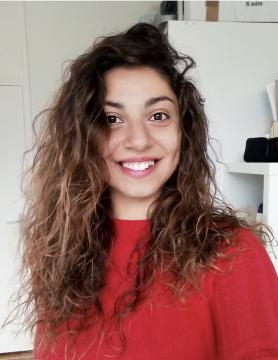
Email: g.senna@campus.unimib.it
Titolo Tesi: IdentiFISH: Tools for Characterization of Mangrove Fish Communities
Tutor: Davide Seveso
Breve Descrizione:
Sono una biologa marina laureata presso l'Università di Groningen, nei Paesi Bassi. In precedenza, ho lavorato sulla metabolomica dei pesci d'acqua dolce e sulla fisiologia delle lumache di mare. Il mio dottorato si concentra sull'uso delle nuove tecnologie DNA per l'estrazione e il sequenziamento dell'eDNA da campioni d'acqua in habitat di mangrovie tropicali.
Sinesi Giulia

Email: g.sinesi@campus.unimib.it
Titolo Tesi: Synthesis of New Materials for Sustainable Cosmetics
Tutor: Miriam Colombo
Breve Descrizione:
Ho una laurea magistrale in Chimica presso l'Università dell'Insubria. La mia ricerca di dottorato riguarda lo sviluppo di materiali sostenibili per i cosmetici. Al di fuori della mia vita accademica, sono appassionato di trucco, lettura, sport (inclusi corsa, palestra e apnea) e volontariato con Apwoyo ONLUS e Amnesty International.
Yesuraj Daina

Email: d.yesuraj@campus.unimib.it
Titolo Tesi: Exploring the Cosmeceutical Potential of Native Seaweeds from the Arabian Gulf: Formulation and Evaluation of Seaweed Extracts in Skincare Products
Tutor: Paolo Galli
Breve Descrizione:
Sono Daina Yesuraj, docente presso l'Università di Dubai con un Master in Biologia e un Diploma di Post Laurea in Bioinformatica. La mia expertise è nella tecnologia delle alghe e nella biologia molecolare, che integro nel mio insegnamento e nella mia ricerca. Nel tempo libero, mi piace cantare, ballare e occuparmi degli animali domestici.
38th cycle
Becchi Alessandro
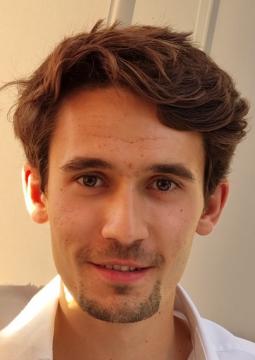
Email: a.becchi1@campus.unimib.it
Titolo Tesi: Towards Marine Sustainability in Luxury Packaging and Textiles: Insights into Polymer Photodegradation by Advanced Mass Spectrometry Techniques
Tutor: Marina Lasagni
Breve Descrizione:
Mi sono laureato con un Master in Chimica presso l'Università di Milano-Bicocca. La mia ricerca si concentra sulla sostenibilità degli imballaggi di lusso utilizzando tecniche avanzate di spettrometria di massa per studiare la fotodegradazione dei polimeri. Nel tempo libero, mi dedico allo sport, alla fotografia e ai viaggi per esplorare nuove culture e la natura.
Bises Chiara
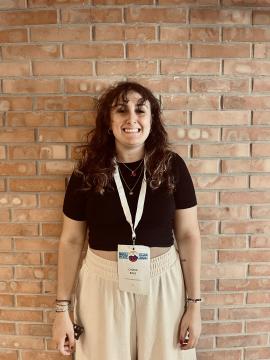
Email: c.bises@campus.unimib.it
Titolo Tesi: Effects of Coral Diseases on the Performance of Large-Scale Coral Restoration Projects
Tutor: Simone Montano
Breve Descrizione:
Dopo aver conseguito la laurea in Biologia, ho scoperto una profonda passione per la vita marina e un vero amore per i coralli, la base di uno degli ecosistemi più straordinari. Per coltivare questa passione, ho ottenuto il mio MSc presso l'Università di Milano-Bicocca e ho iniziato un dottorato in Scienze Marine, Tecnologie e Gestione. La mia ricerca si concentra sullo studio delle malattie dei coralli alle Maldive, con particolare attenzione ai tumori corallini.
Tutta la mia passione per la vita sottomarina non sarebbe la stessa senza le immersioni. Come guida subacquea, mi impegno a far scoprire alle persone la loro connessione con l'oceano, proprio come io ho trovato la mia.
Canella Cristina
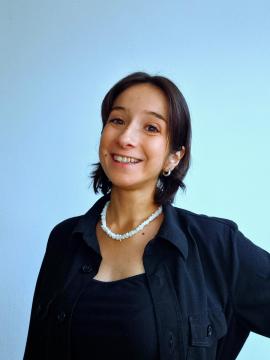
Email: c.canella@campus.unimib.it
Titolo Tesi: The Legal Basis for Representative Networks of Marine Protected Areas and the Implementation of Other Effective Area-Based Conservation Measures in the Maldives and the Wider Indian Ocean Region
Tutor: Ilaria Tani
Breve Descrizione:
Da laureata in Scienze Marine con competenze in Diritto Internazionale del Mare e politiche marine, arricchite da una laurea triennale in Scienze Ambientali, sono ben preparata ad affrontare sfide multidisciplinari. Il mio background variegato alimenta il pensiero critico e la mia passione per l'esplorazione di soluzioni innovative per la conservazione marina, lo sfruttamento sostenibile delle risorse naturali e le misure climatiche intelligenti. Mi piace approfondire la conoscenza delle Tradizioni Indigene, raccogliere bacche e erbe selvatiche nella foresta, e praticare yoga Vinyasa e Ashtanga.
Cerri Federico
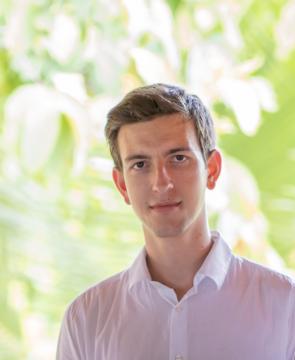
Email: f.cerri@campus.unimib.it
Titolo Tesi: Ocean Bioprospecting: Exploring the Pharmaceutical Potential of Tropical Marine Organisms
Tutor: Paolo Galli
Breve Descrizione:
Ho conseguito la laurea magistrale in Biologia presso l'Università di Milano-Bicocca. A partire dal progetto di tesi, ho lavorato nel campo della bioprospezione marina, che è ora il mio ambito di ricerca. Il mio progetto di dottorato si concentra sulla bioprospezione delle mangrovie, valutandone la fitochimica e i potenziali usi terapeutici, con l'obiettivo di trovare nuovi candidati promettenti per farmaci da queste fonti naturali. Inoltre, la mia ricerca studia gli ecosistemi di mangrovie alle Maldive, valutando gli habitat e identificando le specie presenti.
Mi piace fare ricerca, lavorare sul campo, insegnare e supervisionare gli studenti. Questi sono i motivi per cui ho iniziato il programma di dottorato in Scienze Marine, Tecnologia e Gestione. L'argomento del mio lavoro, le mangrovie, mi permette di godere delle mie due passioni: le piante e il mare!
Corigliano Gabriele

Email: g.corigliano2@campus.unimib.it
Titolo Tesi: Bioinspired robots for marine biodiversity
Tutor: Athanassia Athanassiou
Breve Descrizione:
Mi sono laureato in Ingegneria Biomedica presso il Politecnico di Milano e attualmente sono dottorando in Scienze Marine presso l'Università di Milano-Bicocca e l'Istituto Italiano di Tecnologia. Sto lavorando su materiali intelligenti per il ripristino dei coralli e sulla robotica morbida subacquea.
De Santes Beatrice
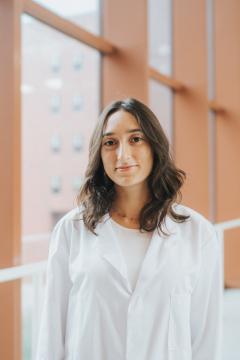
Email: b.desantes@campus.unimib.it
Titolo Tesi: Search of Natural Alternatives for the Development of Solid and Semisolid Cosmetic Formulations
Tutor: Miriam Colombo
Breve Descrizione:
Mi sono laureata in Biologia presso l'Università di Milano-Bicocca. Ho competenze nelle nanoformulazioni per il rilascio di farmaci e attualmente sono dottoranda in un progetto di cosmetici sostenibili finanziato dall'Unione Europea (MUSA), incentrato sulla ricerca di nuove molecole naturali e sullo sviluppo di formulazioni solide e semisolide.
Del Greco Alexia
Email: a.delgreco1@campus.unimib.it
Titolo Tesi: Making Luxury Sustainable: An Exploration of Consumers’ Needs, Perceptions and Behaviours
Tutor: Maria Grazia Strepparava
Breve Descrizione:
Sono una psicologa con una specializzazione in sostenibilità. Mi interessano particolarmente l'economia comportamentale, la teoria dei nudges e la comunicazione. Attualmente, sono dottoranda presso l'Università di Milano-Bicocca. La mia ricerca si concentra principalmente sul settore del lusso e il comportamento dei consumatori, con l'obiettivo specifico di esplorare come far accettare e valorizzare i prodotti di lusso sostenibili dai consumatori.
Altri miei interessi includono le interazioni uomo-animale e il benessere dei veterinari.
Fantò Massimiliano
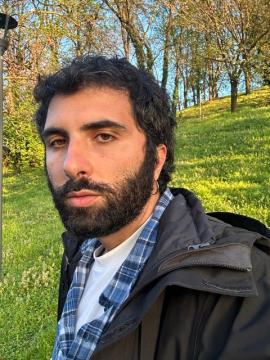
Email: m.fanto1@campus.unimib.it
Titolo Tesi: Invasive Alien Species from a Sociocultural Perspective: Ethnographic Research on Human-Animal Interactions in the Mediterranean Area
Tutor: Marcella Schmidt di Friedberg
Breve Descrizione:
Mi sono laureato in Scienze Antropologiche ed Etnologiche (MA) presso l'Università di Milano-Bicocca, dopo aver conseguito una laurea triennale in Comunicazione Interculturale (con un focus sulle culture e sulla lingua araba) presso la stessa università. I miei principali interessi di ricerca sono gli studi uomo-animale e i metodi etnografici. Indago anche la thanatopolitica in relazione ai progetti di eradicazione delle specie animali, alle invasioni biologiche e agli animali da compagnia. La mia ricerca etnografica e storica esplora le implicazioni culturali, sociali e politiche della diffusione di una specie marina invasiva nelle isole Kerkennah, in Tunisia.
Ferrari Giorgia
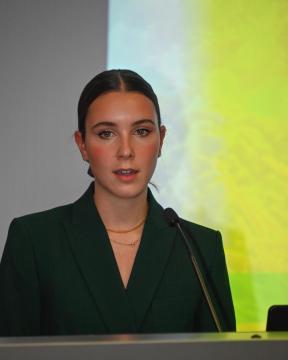
Email: g.ferrari63@campus.unimib.it
Titolo Tesi: Effects of Plastic Pollution on Sea Microfauna and Corals
Tutor: Athanassia Athanassiou
Breve Descrizione:
Ho una laurea triennale in Scienze Biologiche e una magistrale in Scienze Marine, entrambe conseguite presso l'Università Milano-Bicocca. Ho svolto la mia tesi magistrale sulle malattie dei coralli a Bonaire, nei Caraibi Olandesi.
Madaschi Andrea
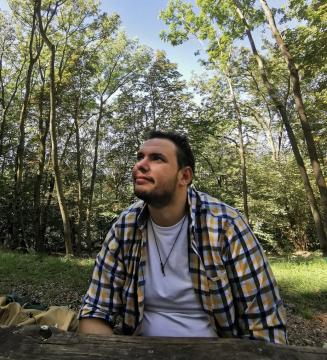
Email: a.madaschi1@campus.unimib.it
Titolo Tesi: Merging Thermal and Chemical Preconditioning as a Possible Technique to Enhance Coral’s Thermal Tolerance Against Coral Bleaching
Tutor: Davide Seveso
Breve Descrizione:
Ho una laurea magistrale in Scienze Marine e una Laurea triennale in Scienze Biologiche, entrambe conseguite presso l'Università di Milano-Bicocca. La mia ricerca si concentra sulla risposta cellulare dei coralli ai fenomeni di bleaching e studia il precondizionamento come potenziale tecnica di mitigazione dello stesso nei coralli tropicali, in collaborazione con il centro di ricerca MaRHE e l'Acquario di Genova. Nel tempo libero, mi piace giocare a giochi di ruolo.
Mazumdar Arindam
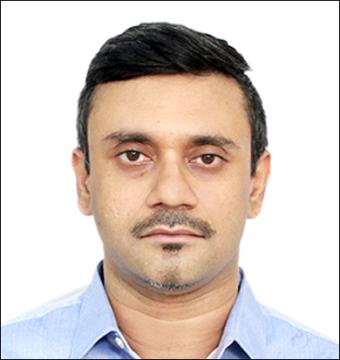
Email: a.mazumdar@campus.unimib.it
Titolo Tesi: Ecological assessment of mangrove stands in al-zorah protected area United Arab Emirates
Tutor: Marina Lasagni
Breve Descrizione:
Come dottorando mi occupo della valutazione ecologica delle mangrovie nell'area protetta di Al Zorah, negli Emirati Arabi Uniti. Ho conseguito la laurea magistrale in Scienze Marine presso l'Università Milano-Bicocca. Sono particolarmente interessato alla chimica dell'oceano e attualmente sto lavorando sull'analisi di pigmenti, metaboliti e altri bio-volatili all'interno di organismi marini come le mangrovie, le alghe e i coralli. Utilizzo tecniche chimiche avanzate come GC-MS e HPLC. Il mio principale hobby è la musica e mi piace suonare la chitarra.
Rinaldi Camilla
Email: c.rinaldi6@campus.unimib.it
Titolo Tesi: Advanced Sustainable Materials to Protect and Heal Reefs from Coral Bleaching Events
Tutor: Despina Fraguli
Breve Descrizione:
Dopo aver conseguito la laurea in Scienze Biologiche, ho proseguito gli studi in Scienze Marine, svolgendo la ricerca della mia tesi a Bonaire, nei Caraibi Olandesi. Attualmente lavoro presso l'Istituto Italiano di Tecnologia nel progetto "Materiali Avanzati Sostenibili per Proteggere e Curare i Coralli dagli Eventi di Sbiancamento". Sportiva e appassionata di comunicazione, divido la mia vita tra il laboratorio, i tessuti aerei, l'arrampicata e la divulgazione scientifica.
Rota Alessia
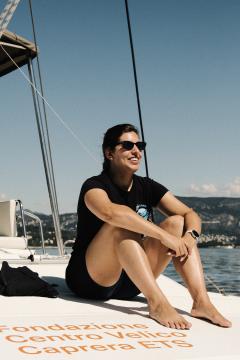
Email: a.rota58@campus.unimib.it
Titolo Tesi: Using Marine Environmental DNA for Biodiversity Monitoring and Conservation Planning
Tutor: Andrea Galimberti
Breve Descrizione:
Dopo essermi laureata in Biologia Sperimentale e Applicata presso l'Università di Pavia, dove è iniziato il mio interesse per la genetica, ho deciso di specializzarmi in ecologia molecolare. La mia ricerca attuale si concentra sullo studio della megafauna marina utilizzando strumenti molecolari non invasivi a scopo di conservazione. Durante la mia formazione accademica, le numerose esperienze all'estero sono state fondamentali per sviluppare una mentalità e un approccio multidisciplinari per una ricerca più mirata alla conservazione.
Fuori dal laboratorio, mi piace fare immersioni, surf, escursioni e arrampicata.
Siena Marialuisa Federica
Email: federica.siena@unimib.it
Titolo Tesi: Outreach and Citizen Science for Marine Conservation and Restoration
Tutor: Simone Montano
Breve Descrizione:
Come dottoranda nel corso di Scienze Marine, Tecnologie e Gestione presso l'Università di Milano-Bicocca, sono profondamente interessata a collaborare con i cittadini per proteggere e ripristinare gli ecosistemi marini. Il mio principale obiettivo è utilizzare la ocean literacy e la citizen science come strumenti per promuovere comportamenti di conservazione positivi e pratiche di ripristino in tutti gli oceani e nelle comunità. Attualmente sto lavorando su due progetti straordinari: Map the Giants e Playing with Corals. Il primo progetto mira a localizzare, studiare e proteggere le colonie di coralli più grandi e antiche del pianeta, mentre il secondo utilizza il calcio come strumento per coinvolgere i giovani delle Maldive e promuovere i principi di conservazione marina.
Ho conseguito la laurea magistrale presso l'Università di Milano-Bicocca dopo aver trascorso diversi anni nel settore del turismo, lavorando nella divulgazione, nella responsabilità sociale d'impresa e nella sostenibilità. Sono anche una subacquea appassionata e istruttrice di immersioni, dedicando quanto più tempo possibile all'insegnamento e all'interazione con le persone riguardo alle creature marine, in particolare i miei amati coralli.
Spena Francesca
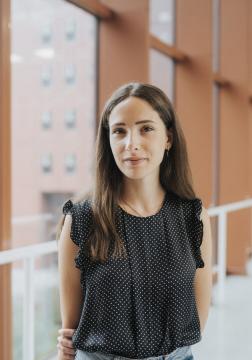
Email: f.spena2@campus.unimib.it
Titolo Tesi: Search for Novel Sustainable Materials from Marine Sources for Replacing Synthetic Substances in Cosmetics
Tutor: Miriam Colombo
Breve Descrizione:
Laureata in Biologia presso l'Università di Milano-Bicocca, attualmente sono al secondo anno di dottorato in Scienze Marine, Tecnologie e Gestione. La mia ricerca si concentra sulla sintesi, caratterizzazione e valutazione citotossica di nanoparticelle polimeriche, sull'estrazione di molecole da fonti vegetali e sulla sintesi e caratterizzazione di microparticelle ecologiche per uso cosmetico. Lavoro inoltre anche allo sviluppo di formulazioni sostenibili per prodotti cosmetici, come creme e lozioni.
Teaching staff
Teaching board
Membri interni
FALLATI Luca, Università degli Studi di Milano-Bicocca – cycle 41°
GALIMBERTI Andrea, Università degli Studi di Milano-Bicocca – cycle 38° - 39°
GALLI Paolo, Università degli Studi di Milano-Bicocca – cycle 38° - 39°- 40° - 41°
LASAGNI Marina, Università degli Studi di Milano-Bicocca – cycle 38° - 39°- 40° - 41°
MAGGIONI Davide, Università degli Studi di Milano-Bicocca – cycle 41°
MELLINATO Giulio, Università degli Studi di Milano-Bicocca – cycle 38° - 39°- 40° - 41°
MONTANO Simone, Università degli Studi di Milano-Bicocca – cycle 38° - 39°- 40° - 41°
SAVINI Alessandra, Università degli Studi di Milano-Bicocca – cycle 38° - 39°- 40° - 41°
SCHMIDT MULLER DI FRIEDBERG Marcella, Università degli Studi di Milano-Bicocca – cycle 38° - 39°- 40° - 41°
SEVESO Davide, Università degli Studi di Milano-Bicocca – cycle 38° - 39°- 40° - 41°
SPANO’ NUNZIACARLA, Università di Messina – cycle 40° - 41°
SALIU Francesco, Università degli Studi di Milano-Bicocca – cycle 41°
STREPPARAVA Maria Grazia, Università degli Studi di Milano-Bicocca – cycle 38° - 39°- 40° - 41°
TANI Ilaria, Università degli Studi di Milano-Bicocca – cycle 38° - 39°- 40° - 41°
Membri esterni
ATHANASIOU Athanassia, Istituto Italiano di Tecnologia – IIT – cycle 38° - 39°- 40° - 41°
BALDACCHINO Godfrey, Università ta' Malta (Malta) – cycle 38° - 39°- 40° - 41°
DEPASCALE Donatella, Stazione Zoologica "Anton Dohrn" di Napoli – cycle 38° - 39°- 40° - 41°
GAGLIO Daniela, CNR – cycle 41°
CLEMENZA Massimiliano, INFN – cycle 41°
CIRRINCIONE Maurizio, University of the South Pacific (Fiji) – cycle 38° - 39°
FRAGOULI Despoina, Istituto Italiano di Tecnologia – IIT – cycle 38° - 39°- 40° - 41°
SPEICH Sabrina, Ecole Normale Supérieure (Francia) – cycle 38° - 39°
STRONA Giovanni, University of Helsinki (Finlandia) – cycle 38° - 39°
Teaching staff UNIMIB
Galli Paolo - DEPARTMENT OF EARTH AND ENVIRONMENTAL SCIENCES (DISAT) - SSD: Ecologia (BIOS-05/A)
Schmidt Muller Di Friedberg Marcella - "RICCARDO MASSA" DEPARTMENT OF HUMAN SCIENCES FOR EDUCATION - SSD: Geografia (GEOG-01/A)
Stepparava Maria Grazia - SCHOOL OF MEDICINE AND SURGERY - SSD: Psicologia Clinica (PSIC-04/B)
Colombo Miriam - DEPARTMENT OF BIOTECHNOLOGY AND BIOSCIENCES (BtBs) - SSD: Biochimica Clinica e Biologia Molecolare Clinica (BIOS-09/A)
Galimberti Andrea - DEPARTMENT OF BIOTECHNOLOGY AND BIOSCIENCES (BtBs) - SSD: Zoologia (BIOS-03/A)
Lasagni Marina - DEPARTMENT OF EARTH AND ENVIRONMENTAL SCIENCES (DISAT) - SSD: Chimica a Dell'Ambiente e Dei Beni Culturali (CHEM-01/B)
Mellinato Giulio - DEPARTMENT OF ECONOMICS, MANAGEMENT AND STATISTICS (DEMS) - SSD: Storia Economica (STEC-01/B)
Savini Alessandra - DEPARTMENT OF EARTH AND ENVIRONMENTAL SCIENCES (DISAT) - SSD: Geografia Fisica e Geomorfologia (GEOS-03/A)
Contardi Marco - DEPARTMENT OF EARTH AND ENVIRONMENTAL SCIENCES (DISAT) - SSD: Scienza e Tecnologia Dei Materiali (IMAT-01/A)
Fallati Luca - DEPARTMENT OF EARTH AND ENVIRONMENTAL SCIENCES (DISAT)) - SSD: Geografia Fisica e Geomorfologia (GEOS-03/A)
Montano Simone - DEPARTMENT OF EARTH AND ENVIRONMENTAL SCIENCES (DISAT) - SSD: Ecologia (BIOS-05/A)
Russo Selena - SCHOOL OF MEDICINE AND SURGERY - SSD: Psicologia Clinica (PSIC-04/B)
Saliu Francesco - DEPARTMENT OF EARTH AND ENVIRONMENTAL SCIENCES (DISAT)- SSD: Chimica a Dell'Ambiente e Dei Beni Culturali (CHEM-01/B)
Seveso Davide - DEPARTMENT OF EARTH AND ENVIRONMENTAL SCIENCES (DISAT) - SSD: Ecologia (BIOS-05/A)
Tani Ilaria - SCHOOL OF LAW - SSD: Diritto internazionale (GIUR-09/A)
Research lines
The Doctorate course in Marine Sciences, Technology and Management focuses on a wide range of interdisciplinary topics, all aimed at advancing knowledge in the broad field of marine sciences and the management of marine-related projects. The research topics currently being investigated by our PhD students encompass:
- Marine Conservation and Sustainability: Research on marine protected areas, sustainable exploitation of natural resources, and the restoration of ecosystems such as coral reefs and oyster beds. This line of research includes the use of advanced materials, ecological and biotechnological approaches for conservation, and cutting-edge techniques like DNA sequencing for biodiversity monitoring.
- Coral Health and Restoration: Several projects focus on coral resilience, restoration techniques, and the impact of diseases and climate change on coral ecosystems. From exploring preconditioning techniques to enhance coral thermal tolerance to studying coral diseases and coral bleaching mitigation strategies, these projects aim to advance our knowledge with the final aim of safeguarding coral reef ecosystems.
- Marine Geomodelling and Habitat Mapping: The PhD students working on this research line, related to the field of marine geology, use state of the art technologies and techniques to model and characterize the seafloor from geomorphological, ecological and sedimentological perspectives. The product of such research have the potential to aid marine spatial planning and management for several purposes like geo-hazard, climate change, marine protected areas and restoration projects.
- Marine Bioprospecting and Cosmeceutical Development: This line investigates the potential of organisms proper of the marine environment, such as mangroves and algae, for pharmaceutical and cosmetic applications. PhD students explore the bioactive compounds produced by marine species, aiming to discover sustainable alternatives to synthetic materials and to develop new therapeutic and cosmetic products.
- Sustainable Luxury and Consumer Behavior: Research in this field examines how to integrate sustainability into luxury goods, focusing on consumer perceptions, behavior, and acceptance of eco-friendly products. This includes an exploration of marine polymers for luxury packaging and textiles.
- Human-Animal and Sociocultural Interactions: PhD students involved in ethnographic research investigate the sociocultural dimensions of invasive species management, as well as the impact of human activities on marine ecosystems and wildlife.
- Advanced Materials for Marine Applications: PhD students are developing sustainable materials for applications such as underwater robotics, reef protection, and cosmetics. This includes exploring biodegradable materials and intelligent polymers that can support marine restoration efforts.
Admission
Application Guidelines
The Call for Applications, the Online application guide, and the FAQs on how to take the admission test are available at the links below. Please read the Call for Applications, the Description sheets for each PhD program, the list of Project-based scholarships, the Online application guide, and the FAQs carefully.
Here are some additional suggestions relevant to your application.
Selection procedure
The selection procedure consists of two phases:
- Assessment of qualifications, research project, and publications.
- oral test (videoconference)
Assessment of qualifications
Qualifications are assessed by the Selection Board before the oral examination. To access the oral examination no minimum score in the assessment of qualifications is requested. The Selection Board will evaluate:
1) Grade of bachelor’s degree: max 3 points
2) Grade of master's degree (second cycle): max 7 points
2bis) Grade of old system degree or single-cycle second level degree: max 10 points
3) Publications in extenso (already published or accepted by the publishers) and conference papers, of the last two years: max 4 points
4) Participations in post-degree masters, training courses, advanced courses, specialization schools, or any other second degrees: max 2 points
5) Certification of joint research and analysis max 2 points
6) Certification of training periods and/or research periods abroad of at least two months: max 2 points
The Selection Board reserves the right to evaluate periods of less than 2 months if such for early return due to documented force majeure limited to COVID-19'.
For those students who have not obtained their degree yet, the score of points 2 or 2bis will be replaced with the assessment of the average mark of the examinations:
- Students with master's Degree: max 7 points
- Students of old system degree (obtained under the laws in force prior to Ministerial Decree no. 509/1999) or single-cycle second level degree: max 10 points
Research project: during the competition registration procedure, the candidate must upload, in addition to the titles, also a research project, in Italian or English. The research project must be consistent in terms of topics and disciplinary areas with the lines of research present in the PhD Program and with the proposals for the scholarships. It should be noted that the research project is the first hypothesis of the candidate, it will not necessarily coincide with the PhD research that will see the fundamental contribution provided by the comparison with the faculty and the host institution.
Proposal characteristics: length 8,000-10,000 characters (spaces included, bibliography excluded), consisting of the following parts:
- Title, abstract (about 400 characters), theoretical background and state of the art, objectives/hypotheses or research questions, methodology, expected results.
- Bibliography.
Candidates will need to show methodological rigor, expository clarity, argumentation, critical assessment, and deepening of problems.
Information about the oral examination
Oral test interview language: During the oral exam, knowledge of the English language will be assessed. The examination may be taken in Italian or English at the choice of the candidate.
Oral exam: the oral exam involves a discussion of the research project proposed by the candidate and its relevance to the field of study identified by the doctorate.
Scholarship
The amount of the PhD scholarship is €16,243.00 per year, gross of social security contributions to be paid by the scholarship holder. The amount of the scholarship is increased by 50% for the period of stay abroad. The scholarship does not include any accommodation arrangements.
Students who are selected for the research project without the scholarship can apply for the “DSU: Diritto allo Studio”. For further information see the link below:
Additional Information
For any questions on administrative and technical issues relating to registration for the call, please contact: dottorati@unimib.it
For any questions on scientific issues, please contact the prospective supervisor, the Responsible for the chosen curriculum, or the Coordinator of the PhD Course.
IT: https://www.disat.unimib.it/it/didattica/dottorato-scienze-marine-tecnologie-e-gestione
EN: https://www.disat.unimib.it/en/study/phd-marine-sciences-technologies-and-management
Clone of Clone of Ph.D. SCGA - Final dissertation cycle XXXVI - Curriculum Geology
Commissioned research and consultancy
The University of Milano-Bicocca and the DISAT department are committed to making a significant contribution to the social and economic development of the local area.
For this reason, DISAT staff are actively involved in corporate consultancy related to various multidisciplinary issues connected to environmental sciences, including geological, ecological, biological, physical, and chemical fields.
Further information on the procedures for establishing Contracts and Agreements can be found at the following link:
https://www.unimib.it/ricerca/valorizzazione-della-ricerca/collaborazione-territorio/contratti
Below, the research areas and related consultancy activities are described.
Chemistry Area
The Analytical Chemistry Research Group at DISAT brings together departmental expertise in the field of experimental and computational analytical chemistry. Leveraging these skills and available instrumental resources, the group offers consultancy in the application of machine learning techniques to chemical data, QSAR (Quantitative Structure-Activity Relationship) studies, and the development and validation of analytical methods.
Contacts: davide.ballabio@unimib.it; viviana.consonni@unimib.it; veronica.termopoli@unimib.it; fabio.gosetti@unimib.it; roberto.todeschini@unimib.it; marco.orlandi@unimib.it
The Research Group in Environmental, Cultural Heritage, and Atmospheric Chemistry at DISAT specializes in atmospheric inorganic and organic chemistry applied to the environment (ecosystems and climate), human health, cultural heritage conservation, and the prevention of chemical corrosion in electrical systems. With their expertise and advanced instrumental capabilities, the group provides studies and consultancy services in atmospheric characterization and related effects in diverse contexts, ranging from outdoor to indoor environments.
Contacts: luca.ferrero@unimib.it; ezio.bolzacchini@unimib.it
The VALICELL Research Group at DISAT focuses on lignocellulosic component chemistry. Leveraging their expertise and instrumental capabilities, the group offers consultancy services in the chemical-physical characterization and valorization studies of plant biomass.
Contacts: heiko.lange@unimib.it; luca.zoia@unimib.it; barbara.laferla@unimib.it
The Environmental Chemistry Research Group at DISAT conducts research in the fields of environmental chemistry and sustainable chemistry. Their consultancy services include developing and applying methodologies for analyzing emerging contaminants in various environmental compartments and evaluating technologies and processes to prevent or mitigate their spread, as well as remediation technologies. The group is particularly active in studying the degradation and release processes of polymeric materials (plastics, textile fibers, bio-solids) and developing indicators for assessing the sustainability of new materials and processes. Molecular indicators are also applied and used to evaluate environmental rehabilitation interventions in the region.
Contacts: marina.lasagni@unimib.it; elena.collina@unimib.it; francesco.saliu@unimib.it
The Environmental Physics Research Group at DISAT brings together departmental expertise in the field of physical pollutants. With advanced instrumentation and cutting-edge analytical software, the group offers consultancy services in the following areas:
- Environmental noise: measurements, monitoring, and predictive modeling.
- Acoustic climate and impact assessments.
- Noise from transport infrastructure (roads, railways, and airports): measurements, monitoring, predictive modeling, and evaluations.
- Building acoustics: verification of passive acoustic requirements, on-site measurements, testing, predictive modeling, and evaluations.
- Interior acoustics: measurements, predictive modeling, and evaluations.
- Bioacoustics and ecoacoustics: soundscape measurements and monitoring, index assessments, and evaluations of effects on living organisms.
- Electromagnetic fields: measurements, predictive modeling, and evaluations.
- Computational analysis using statistical tools for large datasets.
- Support for legal disputes.
- Scientific dissemination, seminars, and specialized training.
Contacts: giovanni.zambon@unimib.it, roberto.benocci@unimib.it, fabio.angelini@unimib.it, fausto.tassan@unimib.it